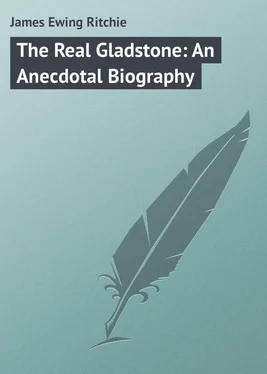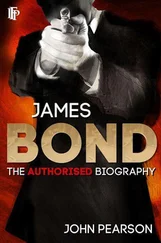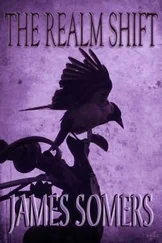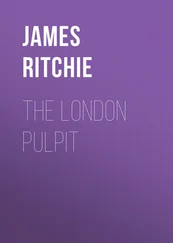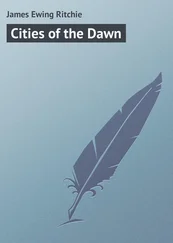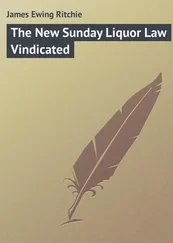James Ritchie - The Real Gladstone - An Anecdotal Biography
Здесь есть возможность читать онлайн «James Ritchie - The Real Gladstone - An Anecdotal Biography» — ознакомительный отрывок электронной книги совершенно бесплатно, а после прочтения отрывка купить полную версию. В некоторых случаях можно слушать аудио, скачать через торрент в формате fb2 и присутствует краткое содержание. Жанр: foreign_prose, на английском языке. Описание произведения, (предисловие) а так же отзывы посетителей доступны на портале библиотеки ЛибКат.
- Название:The Real Gladstone: An Anecdotal Biography
- Автор:
- Жанр:
- Год:неизвестен
- ISBN:нет данных
- Рейтинг книги:4 / 5. Голосов: 1
-
Избранное:Добавить в избранное
- Отзывы:
-
Ваша оценка:
- 80
- 1
- 2
- 3
- 4
- 5
The Real Gladstone: An Anecdotal Biography: краткое содержание, описание и аннотация
Предлагаем к чтению аннотацию, описание, краткое содержание или предисловие (зависит от того, что написал сам автор книги «The Real Gladstone: An Anecdotal Biography»). Если вы не нашли необходимую информацию о книге — напишите в комментариях, мы постараемся отыскать её.
The Real Gladstone: An Anecdotal Biography — читать онлайн ознакомительный отрывок
Ниже представлен текст книги, разбитый по страницам. Система сохранения места последней прочитанной страницы, позволяет с удобством читать онлайн бесплатно книгу «The Real Gladstone: An Anecdotal Biography», без необходимости каждый раз заново искать на чём Вы остановились. Поставьте закладку, и сможете в любой момент перейти на страницу, на которой закончили чтение.
Интервал:
Закладка:
On receiving a copy of the book Sir Robert Peel exclaimed: ‘With such a career before him, why should he write books?’ In other quarters the book met with a warmer appreciation. Baron Bunsen wrote: ‘It is the book of the times – a great event – the first since Burke that goes to the bottom of the question, far above his party and his times. I sat up till after midnight, and this morning I continued till I had read the whole. Gladstone is the first man in England as to intellectual power, and he has heard higher tones than anyone else in this land.’ Dr. Arnold was delighted with it. Newman says to a friend: ‘Gladstone’s book, you see, is making a sensation.’ Again he writes: ‘The Times is again at poor Gladstone; really, I feel as if I could do anything for him. I have not read his book, but its consequences speak for it. Poor fellow! it is so noble a thing.’
Sir Henry Taylor wrote: ‘I am reading Gladstone’s book, which I shall send you, if he has not. It is closely and deeply argumentative, perhaps too much in the nature of a series of profound corollaries for a book which takes so very demonstrative a character, leaves one to expect what is impossible, and to feel drawn on by a postulate; but it is most able and profound, and written in language which cannot be excelled for clearness. It is too philosophical to be generally read, but it will raise his reputation in the opinion of those who do read it, and will not embarrass him so much in political life as a popular quotable book on such subjects might be apt to do. His party speak of him as the man who will be one day at their head, and certainly no man of his standing has yet appeared who seems likely to stand in his way. Two wants , however , may lie across his political career – want of robust health and want of flexibility .’
Writing to Mr. John Murray, Lord Mahon, afterwards Lord Stanhope, says: ‘Mr. Gladstone’s volume has lately engaged much of my attention. It is difficult to feel quite free from partiality where so amiable and excellent a man is concerned; but if my friendship does not blind me, I should pronounce his production as marked by profound ecclesiastical learning and eminent native ability. At the same time, I must confess myself startled at some of his tenets; his doctrine of Private Judgment especially seems to me a contradiction in terms, attempting to blend together the incompatible advantages of the Romanists and of the Protestant principle upon that point.’
Two years afterwards, we find a reference to the same subject. ‘As to the third edition of “The State in its Relations to the Church,” I should think the remaining copies had better be got rid of in whatever summary or ignominious mode you may deem best. They must be dead beyond recall… With regard to the fourth edition, I do not know whether it would be well to procure any review or notice of it, and I am not a fair judge of its merits, even in comparison with the original form of the work; but my idea is that it is less defective, both in the theoretical and historical development, and ought to be worthy of the notice of those who deemed the earlier editions worth their notice and purchase; that it really would put a reader in possession of the view it was intended to convey, which, I fear, is more than can be said of any of its predecessors.’
Mr. Murray does not seem to have had many letters from Mr. Gladstone, though Croker mentions his having called on Mr. Murray to express his dissatisfaction on an article which appeared in the Quarterly on the Corn Laws. When, in 1843, the Copyright Bill was the subject of legislation, he wrote to Mr. Murray: ‘I cannot omit to state that I learn from your note that steps are being taken here to back the recent proceedings of the Legislature. I must not hesitate to express my conviction that what Parliament has done will be fruitless unless the law be seconded by the adoption of such modes of publication as will allow the public here and in the colonies to obtain possession of new and popular English works at moderate prices, if it be practicable for authors and publishers to make such arrangements, I should hope to see a great extension of our book trade, as well as much advantage to literature from the measures that have now been taken, and from those which I trust we shall be enabled to take in completion of them. But unless the proceedings of the trade itself adapt and adjust themselves to the altered circumstances, I can feel no doubt that we shall relapse into or towards the old state of things – the law will be first evaded and then relaxed.’ This sensible hint of Mr. Gladstone’s does not seem to have been entirely thrown away – at any rate, as far as Mr. Murray was concerned.
About the same time Mr. Gladstone seems to have been not a little moved by our military proceedings in India. When Lieutenant Eyre’s ‘Military Operations in Cabool’ appeared, Mr. Murray sent Mr. Gladstone a copy. He replied: ‘I have read it with great pain and shame, which are, I fear, as one must say in such a case, the tests of its merits as a work. May another occasion for such a narrative never arise!’ A humane wish, as subsequent events show, not likely to be speedily realized.
‘Church and State’ soon reached a third edition, and led to the famous review of it by Macaulay, in which he speaks of Gladstone as ‘the rising hope of the stern and unbending Tories.’ ‘I have bought Gladstone’s book on Church and State,’ he writes to Macvey Napier, ‘and I think I can make a good article on it. It seems to me the very thing for a spirited, popular, and at the same time gentlemanlike, critique.’ Again he writes: ‘I met Gladstone at Rome. We talked and walked together in St. Peter’s during the best part of an afternoon, and I have in consequence been more civil to him personally than I otherwise should have been. He is both a clever and an able man, with all his fanaticism.’ At this time Gladstone’s eyesight failed him, and the doctors recommended him to spend the winter at Rome, where he met, besides Macaulay, Henry Manning and Cardinal Wiseman and Grant, who afterwards became Roman Catholic Bishop of Southwark. Among the visitors at Rome that winter were the widow and daughters of Sir Stephen Richard Glynne, of Hawarden Castle, Flintshire. Mr. Gladstone was already acquainted with these ladies, having been a friend of Lady Glynne’s eldest son at Oxford and having also met him at Hawarden. The visit to Rome threw him much into their society, and he became engaged to Lady Glynne’s eldest daughter.
‘In 1839,’ writes Sir Francis Doyle, ‘I attended Mr. Gladstone’s wedding at Hawarden as his best man. Catherine Glynne and her sister Mary, both beautiful women, were married on the same day – the first to William Gladstone, the second to Lord Lyttelton. The occasion was a very interesting one from the high character of the two bridegrooms and the warmth of affection shown for the two charming young ladies by all their friends and neighbours in every rank of life. There was a depth and genuineness of sympathy diffused around which, as the French say, spoke for itself without any words.’
During the early part of their married life Mr. and Mrs. Gladstone lived with Sir Thomas Gladstone at 6, Carlton Gardens. Later they lived at 13, Carlton House Terrace, and when Mr. Gladstone was in office occupied an official residence in Downing Street. In 1850, Mr. Gladstone, who had succeeded to his patrimony five years before, bought 11, Carlton House Terrace, which was his London house for twenty years, and he subsequently lived in Harley Street, where on one occasion an angry mob smashed his windows. During the Parliamentary recess Mr. and Mrs. Gladstone divided their time between Fasque, Sir John Gladstone’s seat in Kincardineshire, and Hawarden House, which they shared with Mrs. Gladstone’s brother, Sir Stephen Glynne, till, on his death, it passed into their sole possession. Mr. Gladstone had a numerous family. His eldest son predeceased him; his second son is known as Herbert Gladstone; another was Henry Gladstone. One of his daughters married the Rev. Mr. Drew.
Читать дальшеИнтервал:
Закладка:
Похожие книги на «The Real Gladstone: An Anecdotal Biography»
Представляем Вашему вниманию похожие книги на «The Real Gladstone: An Anecdotal Biography» списком для выбора. Мы отобрали схожую по названию и смыслу литературу в надежде предоставить читателям больше вариантов отыскать новые, интересные, ещё непрочитанные произведения.
Обсуждение, отзывы о книге «The Real Gladstone: An Anecdotal Biography» и просто собственные мнения читателей. Оставьте ваши комментарии, напишите, что Вы думаете о произведении, его смысле или главных героях. Укажите что конкретно понравилось, а что нет, и почему Вы так считаете.
